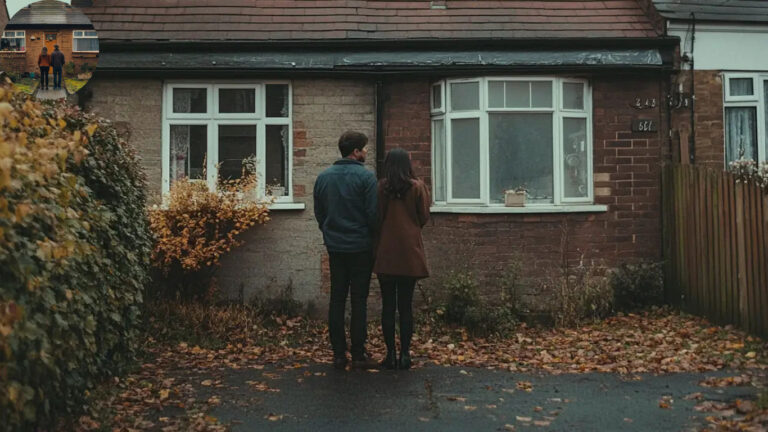Buying out a partner on a house involves purchasing their ownership share to become the sole owner of the property. This process typically arises when co-owners-such as partners, friends, or family members-decide to part ways and one wishes to retain full ownership. The buyout requires agreeing on the value of the property and the partner’s share, arranging financing if necessary, and completing the legal transfer of ownership and mortgage responsibility. Key steps include determining the home’s current market value, negotiating the buyout terms, securing lender approval for mortgage changes, and finalizing the transfer of equity to remove the partner’s name from the title and mortgage documents.
Understanding the Buyout Process
The buyout process begins with open communication. Before diving into financial details, both partners need to discuss the intention behind the buyout. Are you looking for a clean break or hoping to maintain some form of relationship? Clarity on these intentions sets the stage.
Next comes assessing ownership stakes. Understand what percentage each partner holds in the property and how that translates into monetary value. This clarity lays the groundwork for further discussions.
Legalities play a crucial role too. It’s wise to consult with an attorney familiar with real estate transactions to navigate potential pitfalls and ensure compliance with local laws.
Be prepared for negotiations. Emotions can run high during this time, so approaching conversations calmly is key. The goal is not just to finalize numbers but also to reach an agreement that feels fair and respectful for both parties involved in this significant life change.
Reasons for Buying Out a Partner on a House
Buying out a partner on a house can stem from various personal and financial situations. Perhaps the partnership is no longer working, whether due to relationship changes or differing future goals.
One common reason is the desire for full ownership. This often happens when one party wants to invest in renovations or modifications that align with their vision without needing approval from another owner.
Financial strain can also prompt buyouts. If one partner faces economic difficulties, selling their share may be a way to relieve stress while allowing the other person to retain the property.
Emotional factors play a role too. Memories tied to certain homes might encourage someone to take control over shared spaces following significant life events like divorce or separation.
Buying out a partner can provide clarity and direction for both parties involved in co-owning property.
See also how to determine what house you can afford on 90k
Steps to Take Before Initiating the Buyout Process
Before you dive into the buyout process, it’s crucial to gather your thoughts and documents. Start by reviewing your partnership agreement. This document often outlines how a buyout should be handled.
Next, communicate openly with your partner. Discuss intentions and concerns honestly. Clear communication can help mitigate misunderstandings later on.
Your home’s current market value should also be assessed. An unbiased appraisal can be obtained by hiring an appraiser.
Understanding these financial responsibilities is essential before moving forward.
Consult professionals if needed—be it legal advisors or real estate agents. They can provide guidance tailored to your unique situation and ensure you’re making informed decisions throughout the process.
Calculating the Value of Your Partner’s Equity
Calculating your partner’s equity in a house can seem daunting, but it doesn’t have to be. The first step is to determine the property’s current market value. You can hire an appraiser or use online valuation tools for guidance.
Next, subtract any outstanding mortgage balance from this market value. This figure represents the total equity in the home.
To find your partner’s share, consider their percentage ownership. For instance, if you both own 50%, simply divide the total equity by two.
Don’t forget to account for additional factors like improvements made since purchase or any other shared financial contributions that could impact overall value.
Make sure all calculations are transparent and agreed upon by both parties to avoid disputes later on. Being well-informed helps facilitate smoother negotiations as you move forward with potential buyout options.
See also how long can you stay in a habitat for humanity house
Negotiating and Finalizing the Buyout Agreement
Negotiating the buyout agreement is a critical step in the process. It’s essential that both parties feel heard and valued. Begin by presenting your calculations and rationale clearly.
Open communication can foster a better understanding of each party’s needs. Be prepared for counteroffers, as flexibility often leads to more favorable outcomes.
Drafting a formal agreement is vital once terms are settled. This document should include purchase price, payment schedule, and any contingencies. Consulting with a lawyer can help ensure all legal aspects are addressed.
Both partners should review the contract carefully before signing. Clarity here prevents misunderstandings later on.
Remember, it’s not just about numbers; maintaining goodwill can be beneficial if future interactions are necessary. A smooth negotiation lays the foundation for an amicable separation or continuation of partnership in other ventures down the line.
Financing the Buyout: Options and Considerations
When considering how to buyout a partner on a house, financing is a crucial aspect. There are several options available to fund the buyout effectively.
One common choice is securing a mortgage. This allows you to borrow against the property’s equity. However, thorough research on interest rates and repayment terms is essential.
If you have sufficient funds set aside, this can be an effective way to avoid debt altogether.
You might also want to consider joint accounts or refinancing with your current lender.They might offer tailored solutions for partner buyouts that simplify the process.
Involving family members for loans could be an alternative route if traditional financing proves challenging. Always weigh these possibilities carefully before making any decisions about your financial future in the homeownership journey.
Consequences of Not Handling a Buyout Properly
When navigating the complexities of a buyout, it’s essential to approach the process with care. Failing to handle a buyout properly can lead to significant repercussions.
First and foremost, unresolved disputes may arise between you and your partner. If communication breaks down during negotiations, lingering tension can affect personal relationships. This strain might extend beyond financial matters into daily interactions.
Without a proper agreement in place, either party may contest ownership or financial responsibilities, leading to time-consuming court battles that drain resources.
If you agree upon an unfair price for the property share without proper valuation methods, one party may walk away feeling cheated or unsatisfied.
It’s also worth noting that poor planning around financing options might leave you struggling financially long after the deal is done. A hasty decision regarding loans or payment plans can affect your credit score and future borrowing potential.
Handling a buyout correctly is crucial not just for closing this chapter but ensuring both parties feel respected and valued moving forward. Taking these consequences into account will help guide you through each step of how to buy out a partner on a house effectively.
See also corporate real estate a new way to buy your dream home

